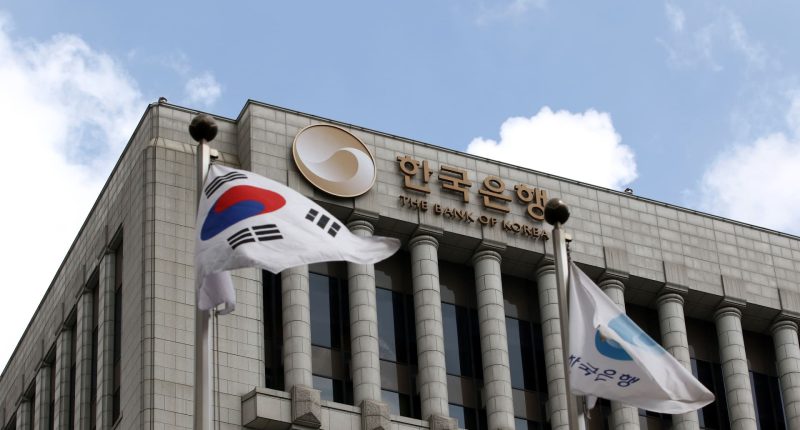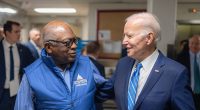Share this @internewscast.com

Tensions from U.S. President Donald Trump’s tariffs are not only a headwind for South Korea but “bad for everybody,” said Bank of Korea Governor Rhee Chang Yong.
“I really hope this trade tension will dissipate, because it’s bad for everybody,” Bank of Korea governor Rhee Chang Yong said late Wednesday.
Speaking to CNBC at the IMF-World Bank Spring Meetings, Rhee said that trade tensions have caused headwinds for the South Korean economy, and downside risk to economic growth has increased.
“We will be affected directly by the U.S. tariffs [and] also indirectly by their tariffs to other countries, for example, the semiconductor production in Vietnam, car and electronics production in Mexico, and our battery production in Canada.”
Rhee’s comments came a day before South Korea’s gross domestic product contracted for the first time since the fourth quarter of 2020, with advance figures revealing that the country’s GDP shrank 0.1% year on year in its first quarter.
The GDP release also comes as a South team heads to the U.S. for trade talks, with Acting President Han Duck-soo saying he expects talks with the U.S to pave the way for an outcome that will benefit both sides.
South Korea’s Ministry of Trade, Industry and Energy said on Thursday that the agenda for the meeting with the U.S. has yet to be finalized.
The central bank governor said the country’s growth would be affected because of political instability in the first quarter, but expressed hope that the uncertainty will be “behind us” after South Korea’s presidential election on June 3.
The impeachment trials of former President Yoon Suk Yeol and Prime minister Han Duck-soo dragged on in the first quarter, with the Constitutional Court striking down Han’s impeachment in March and reinstating him as acting president, before removing Yoon from office on April 4.
Earlier this month, the Bank of Korea held its benchmark policy rate at 2.75% in its April meeting, saying “it is necessary to remain cautious about the impact of heightened exchange rate volatility.”
Trump’s “Liberation Day” announcements at midnight on April 3 led to South Korean won whiplash in the following days.

When asked why did the central bank did not consider a preemptive cut to shore up growth, Rhee attributed the decision to foreign exchange volatility, adding that the bank thought it better to hold the rate and examine incoming data before deciding to move.
“If I make an analogy, now we are feeling like you’re entering into a dark tunnel, and then, in that case, better to slow down a little bit, until the eye [adapts].”







